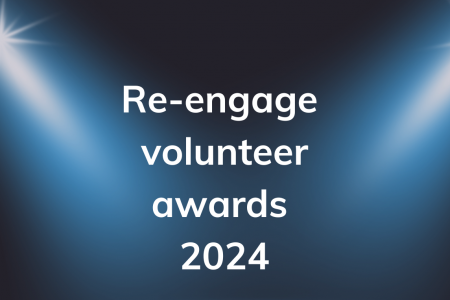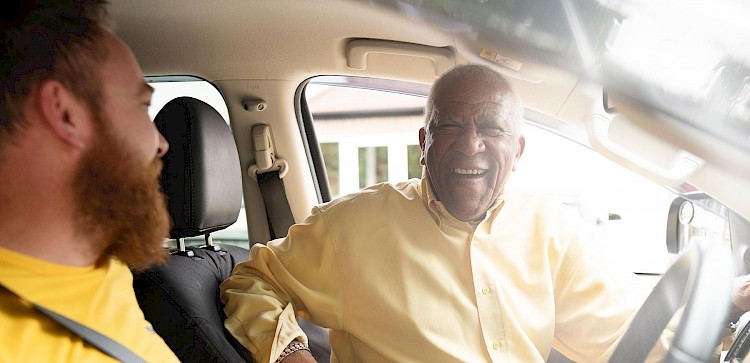Driving for Re-engage
As a Re-engage driver you must be legally entitled to drive the car you’re using, ensure that the vehicle you’re using is roadworthy and be fit to drive.
Being fit to drive:
A person’s fitness to drive can be affected by a medical condition, a temporary illness, and the environment in which you volunteer, work, drive and live.
Health impairments including stress, sleep disturbance, migraine, flu, severe colds, and hay fever can lead to unsafe driving. Sometimes, the treatment for these conditions can also impair your driving.
You mustn’t drive when you’re affected by:
- Alcohol
- Drugs
- Medicines
- Illness
- Tiredness
- Eyesight
If you need to wear glasses or contact lenses to drive, make sure you wear them each time you drive and have your eyesight checked at least every two years.
Alcohol and drugs:
Avoid drinking alcohol in the hours before you drive as it can take several hours for alcohol to leave your body. Alcohol impairs judgement, making drivers over-confident and more likely to take risks. It also slows reactions, increases stopping distances, impairs judgement of speed and distance, and affects vision.
Don’t drive if you’ve taken any illegal drugs, because they can affect your decision making and driving skills as well as your physical and mental condition and behaviour.
Medicines:
Check with your GP or pharmacist whether any over the counter or prescribed medicines - including those described as being for use by children - are likely to affect your driving.
Keeping your vehicle safe:
- Before any journey, check the roadworthiness of your vehicle. You should check that:
- Oil, coolant, and windscreen wash levels are correct
- Tyres are undamaged and have sufficient tread
- Mirrors are positioned correctly
- Washers and wipers are working
- All occupants are using their seat belts, and that head restraints are adjusted correctly.
Managing your speed:
Always stay within the speed limit and make sure that you know the speed limit of the roads you’re using. Remember to give yourself plenty of time for the journey so that you don’t end up rushing and going over the speed limit.
When driving with older guests please be mindful of your driving style and try to avoid rapid acceleration or late braking.
Using your mobile phone:
It’s illegal to use a hand-held mobile phone while driving and this includes any activity that involves holding the phone such as dialling a number or writing a text message. If you need to use your mobile phone, please stop in a safe place before doing so.
Supporting older guests into and out of your vehicle:
For older guests who use walking aids, please bring the aids as close as possible to your car when guests are getting in and out and remember to open the passenger door fully and hold it, so it doesn’t swing shut.
You can help an older guest to fasten the seatbelt; however, please do this from the driver's seat and not by leaning over the older person from the passenger door.
Remember:
Older guests should be able to enter and exit your car with no more than a helping hand. You must never try to lift an older guest out of a car or let the older guest hold or hug you around your neck.
You can revisit the Re-engage driver training at any time by visiting the volunteer resources pages on the Re-engage website.
-
View
More news

Celebrating our incredible volunteers
Meet some of the the people changing lives by reducing loneliness across the UK.
By Re-engage

Shop and support
Raise money to tackle loneliness among older people, while buying your everyday essentials. When you shop with a wide selection of retailers, a small percentage will be given to Re-engage, at no extra cost to you.
By Re-engage

